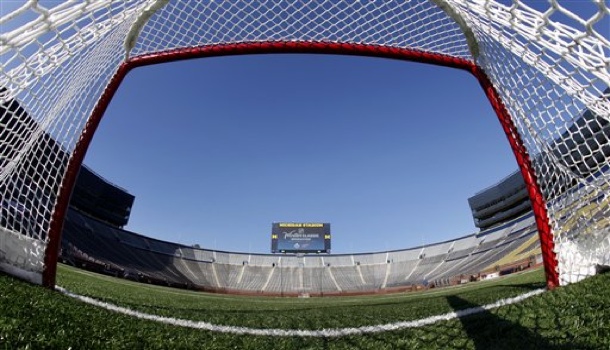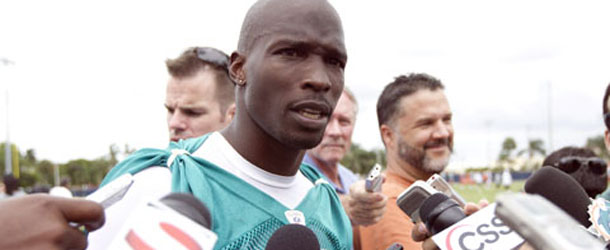
NEW YORK (AP) — NHL owners and players face lots of work to save the hockey season. Whether they are moving closer after a week of talking remains to be seen.
The league and the players’ association met Friday for the fourth straight day and fifth time in seven days, trying to reach an agreement to end the lockout. A union spokesman said there will be multiple meetings during the day to discuss collective bargaining matters.
The sides got an earlier start Friday than in previous days, perhaps recognizing the urgency on the 55th day of the lockout. The league has already called off 327 regular-season games, including the New Year’s Day Winter Classic in Michigan, and said a full season won’t be played.
If there is no deal soon, the NHL could lose a full season to a lockout for the second time in seven years.
NHL Commissioner Gary Bettman and players’ association executive director Donald Fehr spoke publicly Thursday night after talks ended. Neither provided details on what was discussed or if progress was made. The one encouraging sign is that the sides continue to talk.
“I am not going to characterize it except to say, as I have before, that it’s always better when you’re meeting than when you’re not,” Fehr said Thursday night after the sides negotiated for more than five hours at the law offices of Proskauer Rose, the Manhattan firm of NHL lead counsel Bob Batterman.
It wasn’t clear if the NHL responded favorably to a pair of offers the league received from the union Wednesday or if it made counterproposals Thursday. Both sides held internal meetings to review developments and prepare for Friday’s discussions.
“I am not going to discuss the negotiations or the substance of what we’re talking about,” Bettman said Thursday on a wind-blown street corner. “I really don’t think that would be helpful to the process.
“We have work to do, and my hope is that we can achieve the goal of getting a long-term, fair agreement in place as quickly as possible so we can play hockey.”
The atmosphere was positive enough that Fehr didn’t rule out the possibility that talks could stretch into the weekend, too.
But even if an agreement is reached soon, it isn’t clear if any of this season’s games that have been called off through Nov. 30 can be rescheduled. The NHL has said a full 82-game season won’t be played.
“Every day that passes, I think, is critical for the game and for our fans,” Bettman said.
During a second consecutive day of marathon negotiations Wednesday, the players’ association made an offer on revenue sharing in which richer teams would help out poorer organizations, and another proposal regarding the “make-whole” provision that would guarantee full payment of all existing multiyear player contracts.
“There have been discussions over a wide range of topics. … I am not going to comment on the substance of the discussions,” Fehr said from the same spot on the street where Bettman talked.
Along with a handful of team owners, eight players attended Wednesday’s talks, five fewer than Tuesday. Pittsburgh Penguins captain Sidney Crosby and others left New York to try to avoid the impending snowstorm that hit the area, the union said. On Thursday, seven players were in attendance, according to the NHLPA, and at least three owners.
The lockout began Sept. 16 after the collective bargaining agreement expired, and both sides rejected proposals Oct. 18. The belief is that the players’ association has agreed to a 50-50 split of hockey-related revenues, but that division wouldn’t kick in until the third year of the deal.
“Collective bargaining is a process, and it has peaks and valleys and ebbs and flows,” Bettman said. “It is very tough to handicap.”
Revenue sharing and the make-whole provision are major hurdles. Both sides have made proposals that included a 50-50 split of hockey-related revenues. The NHL has moved toward the players’ side in the “make-whole” provision and whose share of the economic pie that money will come from.
Along with the split of hockey-related revenue and other core economic issues, contract lengths, arbitration and free agency also must be agreed upon.
The union accepted a salary cap in the previous labor pact, which wasn’t reached until after the entire 2004-05 season was canceled because of a lockout. The union doesn’t want to absorb the majority of concessions this time after the NHL had record revenue that exceeded $3 billion last season.


